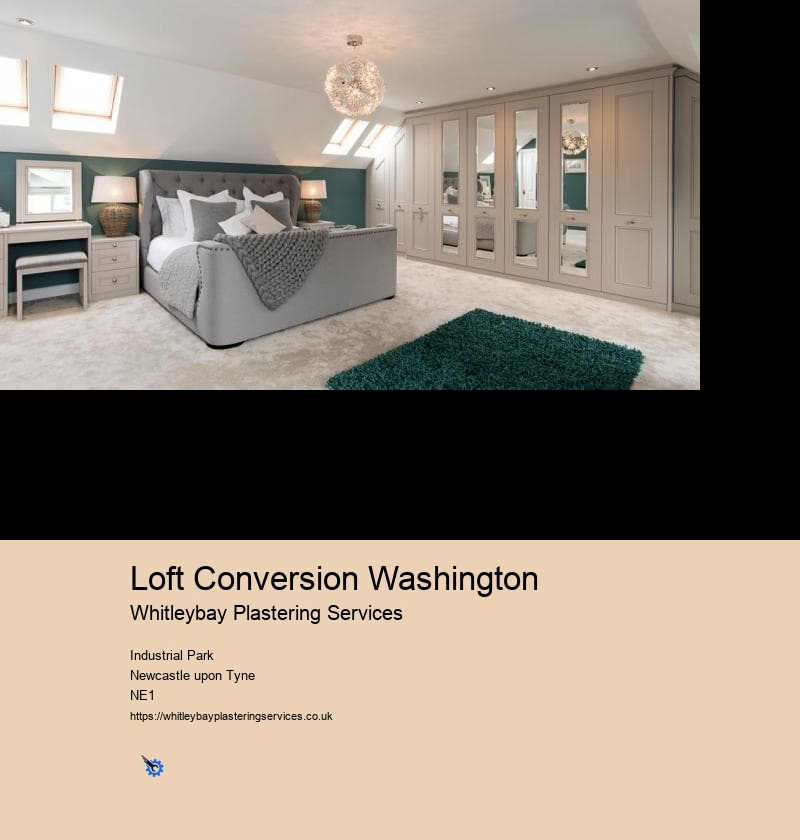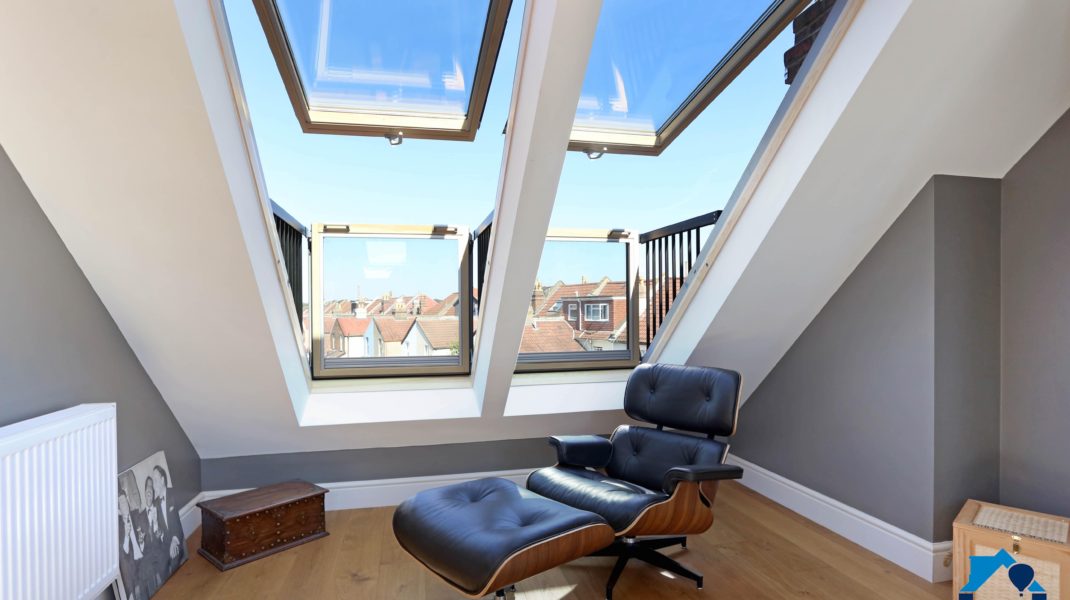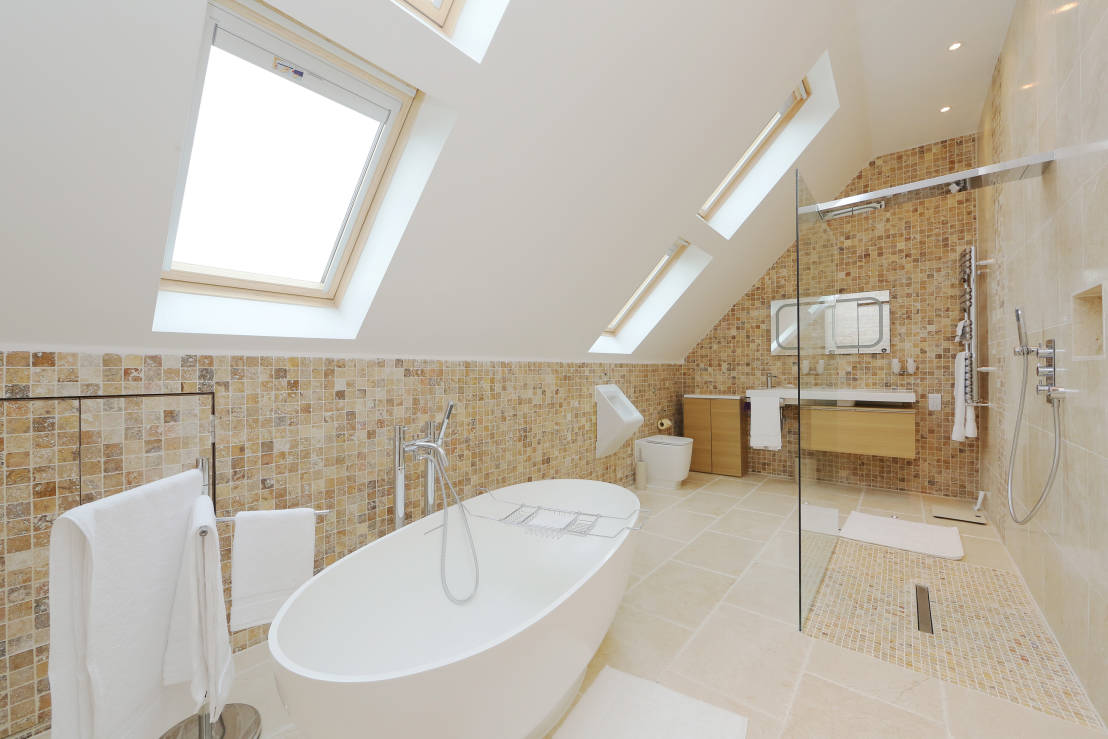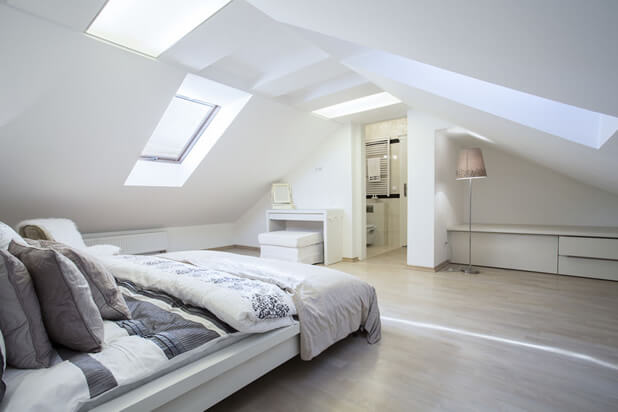Loft Conversion Washington
Loft Conversion Newcastle-upon-Tyne
When it comes to adding value to your home, loft conversions are a great option. The extra space created can be used for extra bedrooms or living space, which can help to boost the value of your property. Not only will this help to increase the value of your home, but it can also make it more attractive to potential buyers.
The cost of a loft conversion will depend on a number of factors such as the size of the loft, the type of conversion and the materials used. Generally speaking, a basic loft conversion in Newcastle-upon-Tyne will cost between £15,000 and £25,000. This includes labour, materials and other associated costs.
One of the most popular and cost-effective options is a dormer conversion. This type of conversion involves adding a new roof structure to the existing space, creating a larger living area with an additional floor. Dormer conversions can usually be completed within a few weeks and are suitable for lofts of all sizes.
Loft conversions allow you to increase the living space in your home without the need to move to a larger property. This can save you a significant amount of money on moving costs, as well as the costs of stamp duty and legal fees.
The next step is the construction work, which usually takes around 4 to 6 weeks to complete. During this stage, workers will install partitions, ceilings, stairs, and other elements to create the extra living space. This process also involves wiring, plumbing, and installing insulation.
Another option is a Velux loft conversion, which involves the installation of roof windows to create more natural light and ventilation. This is a much simpler option than the other two and is generally the most cost-effective. However, it is important to note that this type of conversion does not create as much additional space as the other two options.
Loft Conversion Washington
Loft Conversion Newcastle-upon-Tyne
For instance, if you’re looking to have a large, multi-room dormer loft conversion, you’re likely to pay more than if you were converting a small loft into a single room. Likewise, if you’re looking to have complex features such as an en-suite bathroom or a kitchenette installed, the cost of the conversion could also increase.
On average, converting a loft to a dormer in Newcastle-upon-Tyne can cost between £10,000 and £20,000, depending on the size and complexity of the project. However, this cost can vary greatly depending on the factors mentioned above. If you're considering having a loft converted in Newcastle-upon-Tyne, it's important to speak to a qualified builder or contractor to get an accurate estimate of the cost. They will be able to take into account your specific requirements and advise you on the best materials and methods to use.
In terms of cost, the cost of a loft conversion in Newcastle-upon-Tyne can vary greatly depending on the size of the project and the type of work required. Generally speaking, you should budget for at least £20,000 for a basic conversion. This figure will be higher if you require more extensive work to be carried out.
When it comes to deciding on the best type of loft conversion for your home in Newcastle-upon-Tyne, it’s important to consider all the costs associated with the project. Converting a loft to a dormer can be a great way to add extra space and light to any home, but it can also come with a hefty price tag. So, how much does it cost to convert a loft to a dormer in Newcastle-upon-Tyne?
There are several different options for stairs in a loft conversion. The simplest option is to place the stairs at the end of a hallway or other open space on the ground floor. This is the most cost-effective option, but it may not provide the most convenient access to the loft.
Relevance
| Loft conversion | Attic |
| Roof | Rafters |
| Dormer | Lofts |
| Floor | Gable |
| Planning Permission | Mansard |
| Windows | Door |
| Insulation | Velux |
| Staircase | Eaves |
| Bedroom | Building Regulations |
| Bathroom | Plumbing |
| Joists | Ventilation |
| Stair | Architect |
| Ceiling | DIY |
| Hipped-roof | Building Control |
| Stud Wall | Staircases |
| Roofing | Hips |
| Joists | Stairway |
| Natural Light | Frame Structure |
Wikipedia says this about Newcastle-upon-Tyne
Loft Conversion Dormer Newcastle-upon-Tyne
Loft Conversion Cost
The answer is yes, you can use your loft as a bedroom - but it depends on the type of loft you have. Most lofts can be converted into a bedroom, but some lofts may need to be structurally altered in order for this to happen. This is usually the case for lofts with sloping ceilings or those that have limited headroom.
When comparing quotes, it’s important to consider the quality of the materials and the experience of the builders. Cheaper quotes may mean lower-quality materials and inexperienced builders, so make sure to ask for references and look for reviews online.
Overall, converting your loft can be an excellent way to add value to your property. By considering the type of house you have, the type of conversion you need, and the associated costs, you can ensure that you get the most value out of the project.
Finally, you should keep in mind that the cost of a loft conversion is likely to be higher in Newcastle-upon-Tyne than in other parts of the country due to the city’s higher property prices. However, the extra cost is likely to be offset by the increased value of your home after the conversion is complete.
If you’re considering a loft conversion in Newcastle-upon-Tyne, you’re probably wondering where the stairs go for a loft conversion. The answer is that there are several options for stairs for a loft conversion, and the best option for your home will depend on the size and layout of your space.
The first step to take when considering a loft conversion in Newcastle-upon-Tyne is to contact the local planning authority. They will be able to provide you with detailed information about the type of planning permission that may be required for your project. Additionally, they can provide information about any fees that may be associated with the conversion. It is important to note that some conversions may not require planning permission, however it is always best to check with the local authority before beginning any work.
The first type of loft conversion is a dormer loft conversion. This type of conversion involves the addition of a dormer window and roof structure to create extra headroom and a more spacious living area. A dormer loft conversion is one of the most popular types of loft conversions in Newcastle-upon-Tyne, as it adds extra living space without significantly changing the external appearance of the property. The main advantage of a dormer loft conversion is that it allows for more natural light to enter the room, as well as creating a larger living space. However, it can be more expensive than other types of loft conversions due to the complexity of the work involved.
First, you'll need to consider the size and shape of the loft space. The larger the loft, the more expensive it will be to convert. The complexity of the project will also influence the cost. If you're simply converting a loft to a dormer without any other major renovations, the cost will be lower. However, if you're looking to add extra features like skylights or roof windows, the cost will increase.

Loft Conversion Ideas
Generally speaking, a basic dormer loft conversion in Newcastle-upon-Tyne typically starts at around £20,000, with most conversions costing between £25,000 and £35,000. However, the cost can be higher or lower depending on the size and complexity of the job, as well as the contractor you choose.
In addition to planning permission, you may also be required to obtain a building regulation approval. This is essentially a set of standards that the structure must meet in order to be deemed safe and secure. The building regulation approval is typically issued by an independent expert, such as an architect or surveyor, who will inspect the work to ensure that it meets the necessary standards. The cost of obtaining a building regulation approval will depend on the size and scope of the project, so it is important to factor this into your budget.
Another important factor to consider is what type of loft conversion you want. Do you want to create a bedroom, an office, a storage area, or something else? The type of loft conversion you choose will depend on what you intend to use the extra space for. For example, if you want to create an extra bedroom, it is important to ensure that you will have adequate headroom and ventilation for the space to be comfortable and safe.
If you’re looking to maximize the living space in your Newcastle-upon-Tyne home, a mansard loft conversion may be the best option. This type of conversion involves extending the roof of your house to create a new, larger roof with a shallow pitch. Mansard loft conversions can provide a significant amount of extra living space, but they are also more expensive and require more structural work than other types of conversions.
In some cases, you may not be allowed to convert your loft at all. This is particularly true of properties that are listed buildings or located in conservation areas. If your property falls into one of these categories, you should speak to your local council to find out what the rules are.
Once you have chosen the type of conversion you want, the next step is to contact a professional loft conversion firm in Newcastle-upon-Tyne. A professional firm will be able to advise you on the best way to go about your conversion and will be able to provide you with a timeline for completion. Generally speaking, the firm will begin by assessing the area to be converted, and then will draw up plans and carry out any necessary structural work. This usually takes around two weeks.
The third option is a straight staircase, which is the most common type of staircase used in loft conversions. This type of staircase is more expensive than the other two options, but it provides the most space and is the most aesthetically pleasing. A straight staircase can be customized to fit your needs and can also provide more space for storage underneath the stairs.
Finally, the last most expensive part of a loft conversion in Newcastle-upon-Tyne is likely to be the cost of any additional electrical and plumbing work that may be required. Electrical and plumbing work is important for any loft conversion as it helps to ensure the safety of the occupants. The cost of any additional electrical and plumbing work is based on the complexity and scope of the work needed.
Loft Conversion Dormer
If you’re looking to add some extra living space to your home in Newcastle-upon-Tyne, a loft conversion is a great option. But how much does it cost to convert a loft to a dormer? This depends on a number of factors, including the size of the loft, the type of conversion you choose, and the materials used.
Overall, the cost of converting a loft in Newcastle-upon-Tyne can vary greatly, depending on the size and complexity of the project. However, a full loft conversion can add a great deal of value to your property, so it's worth considering if you're looking for an affordable way to maximize the living space in your home.
Finally, you should also consider the cost of the conversion. Although it can add a significant amount of value to your property, it is important to ensure that you understand all the costs associated with the project. This includes the costs of all materials, labour, and any other associated costs.
Overall, assessing the conversion potential of a loft is an important step in determining if it’s suitable for conversion. By taking into account the size, shape, current structural integrity, local regulations
One advantage of a Velux loft conversion is that it is generally less disruptive to carry out, as it does not require any changes to the structure of the roof. Velux loft conversions are also generally quicker to complete and may be more suitable for properties with restricted access or awkward roof shapes.
When it comes to loft conversions in Newcastle-upon-Tyne, one of the most important considerations is the cost. While the overall cost of a loft conversion will depend on the size of the space, the type of conversion, and the materials used, one of the most expensive parts of a loft conversion is the roof. The roof is the most visible and important part of the conversion, and it can also be the most expensive.
Finally, it is important to be aware of any other restrictions that may apply to your project. This could include restrictions on the type of materials that can be used, as well as potential restrictions on the size and height of the loft conversion. It is also worth researching any potential impact the conversion may have on neighbouring properties.
The first step in a loft conversion is the planning stage. During this stage, an architect will gather information about the area in which you want to convert and the necessary permissions required. It usually takes up to 8 weeks for planning permission to be granted, after which the construction work can begin.
Finally, you could also opt to build the stairs outside of the house. This can be a great option for larger loft conversions, as it allows for more space in the existing house. However, it also requires more construction work and may not be suitable for all types of loft conversions.
Finally, it’s important to consider access to utilities. If the loft is too far away from plumbing and electricity, then it may not be suitable for conversion. It’s also important to factor in any necessary staircases or ladders, as these may increase the cost and complexity of the project.

Loft Conversion Stairs
A Velux loft conversion is a type of conversion that involves adding windows, usually Velux brand windows, to the slope of the roof in order to bring more light into the space. This type of conversion is generally more affordable and less invasive than a dormer conversion, as it does not require any structural changes to the roof.
The structure of the loft is also essential. You’ll need to make sure the roof is strong enough to support the additional weight. If you’re unsure, it’s worth getting an engineer to perform a structural survey to check the roof is up to the task. It’s also important to check that there is enough ventilation, and that the loft can be accessed safely.
Loft conversions and extensions are two popular home improvement options that many homeowners are considering in Newcastle-upon-Tyne. Both provide extra space and can be designed to suit your lifestyle and budget. But which one is the most cost-effective choice? In this blog, we’ll look at the pros and cons of loft conversions and extensions in Newcastle-upon-Tyne to help you decide which one is the right choice for you.
If you’re considering converting your loft in Newcastle-upon-Tyne, there are several factors to consider before taking the plunge. The first and most important step is to check if your loft can be converted in the first place. There are a few key points to bear in mind when assessing your loft’s suitability for conversion.
In addition to the size and shape of the space, you’ll also need to consider the current structural integrity. The loft must be in good condition, with no signs of damage or wear and tear. If the loft is too old or has been damaged, then it may not be suitable for conversion.
No matter what type of loft conversion you decide to go for in Newcastle-upon-Tyne, it’s important to get the right advice and make sure the work is carried out to a high standard. Make sure you hire a reputable builder and check references before committing to any work.
Finally, you’ll need to make sure you have the correct planning permission. If the loft conversion is within permitted development rights, you won’t need to apply for planning permission. However, if your proposed works are outside of these, you’ll need to apply for planning permission from Newcastle-upon-Tyne City Council.
Loft Conversion Company
Another popular option is a rooflight conversion, which involves adding skylights and windows to the existing roof structure to create a bright, airy space. This type of conversion is ideal for lofts with limited head height and can be completed quickly and without too much disruption.
Loft conversions are a great way to add space and value to your home without sacrificing existing space. They are usually cheaper than extensions, as they don’t require any new foundations or structural work. However, they do still require planning permission and you will need to ensure that the headroom in your loft is sufficient for a conversion.
If you’re thinking of having a loft conversion in Newcastle-upon-Tyne, you’re likely wondering how long it will take to complete. Loft conversions are a great way to add value to your home, and they can be done relatively quickly, depending on the size and complexity of the project. Generally speaking, a loft conversion in Newcastle-upon-Tyne can take anywhere from three to six weeks to complete, but this timeline can vary depending on the type of conversion and the complexity of the job.
The final step is to furnish and decorate the loft. This can take anywhere from a few days to several weeks, depending on the design choices you make. If you choose to hire a professional interior designer, this process can take even longer.
Once the loft conversion is complete you will have a brand new bedroom and you will have increased the value of your home. You can use the extra space however you choose – it could be a bedroom, study, playroom, or anything else you can think of.
Ultimately, whether you choose a loft conversion or an extension largely depends on your individual needs and budget. If you need additional living space and have the budget for it, an extension may be the best option. However, if you are looking for a more cost-effective solution, a loft conversion may be the better choice for you.
In terms of the type of loft conversion that is best in Newcastle-upon-Tyne, there are several options to choose from. You could opt for a standard loft conversion, which involves converting the existing space into a usable area. Alternatively, you could choose a dormer loft conversion, which involves creating an additional room in the attic. This type of conversion is more expensive than a standard loft conversion, but it offers more space and flexibility.

Check our other pages :
- Loft Conversion Newcastle-upon-Tyne
- Loft Conversion Newcastle
- Loft Conversion Peterlee
- Loft Conversion Durham
- Loft Conversion Seaham
- Loft Conversion Consett
- Loft Conversion Ashington
- Loft Conversion Sunderland
- Loft Conversion Blyth
- Loft Conversion Chester-le-Street
- Loft Conversion South Shields
- Loft Conversion Cramlington
- Loft Conversion Washington
- Loft Conversion Jarrow
- Loft Conversion Whitley Bay
- Loft Conversion Newburn
- Loft Conversion North Shields
- Loft Conversion Hexham
- Loft Conversion Durham
- Loft Conversion Ponteland
- Loft Conversion Prudhoe
- Loft Conversion Morpeth
- Loft Conversion Hartlepool
- Loft Conversion Stanhope
- Loft Conversion Rothbury
- Loft Conversion Bellingham